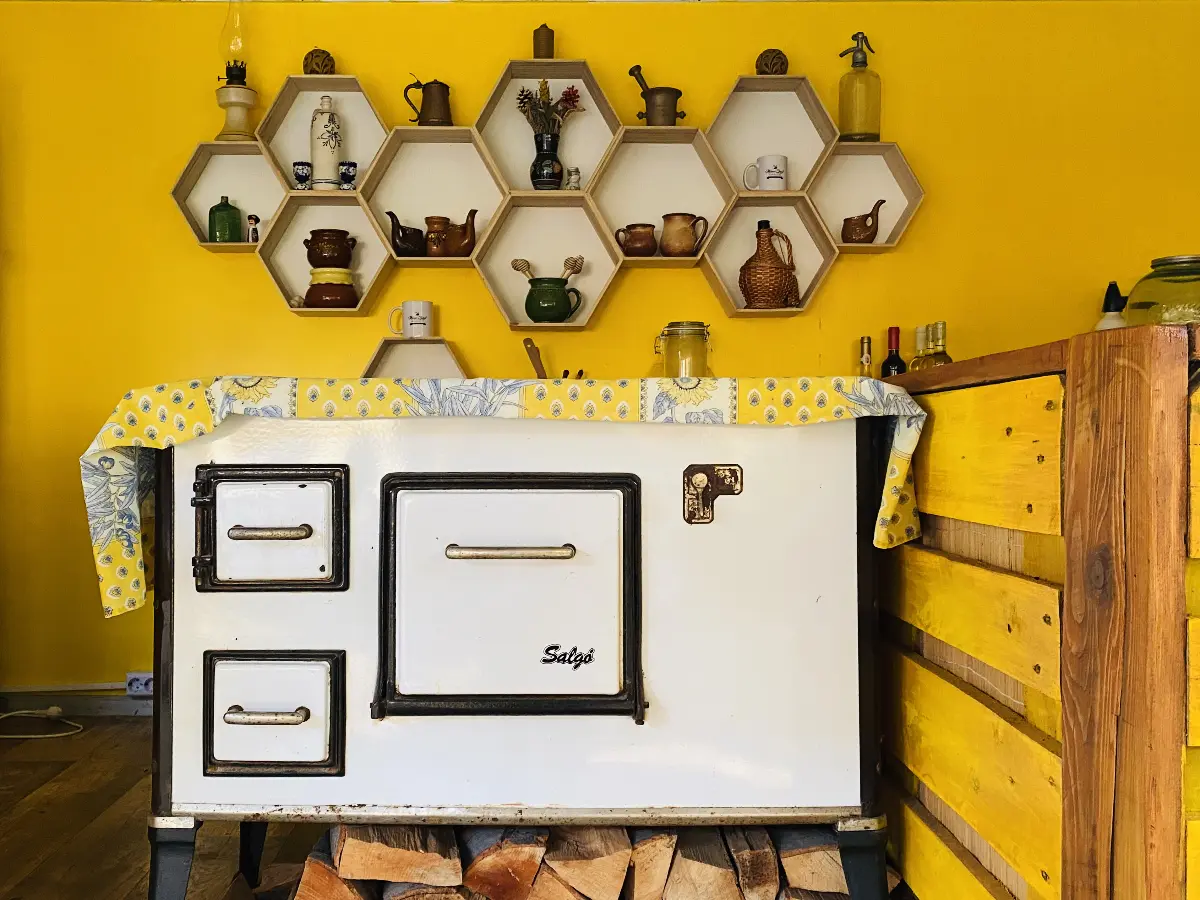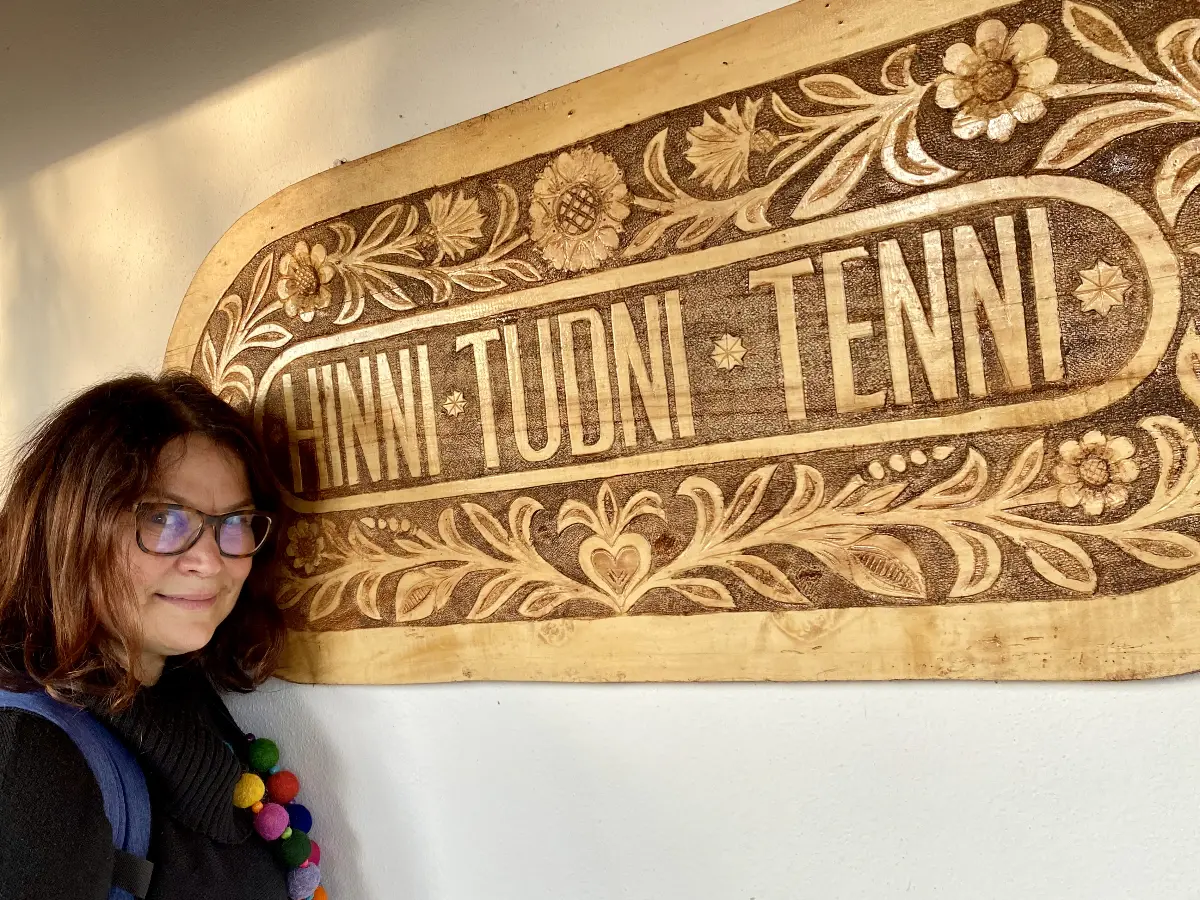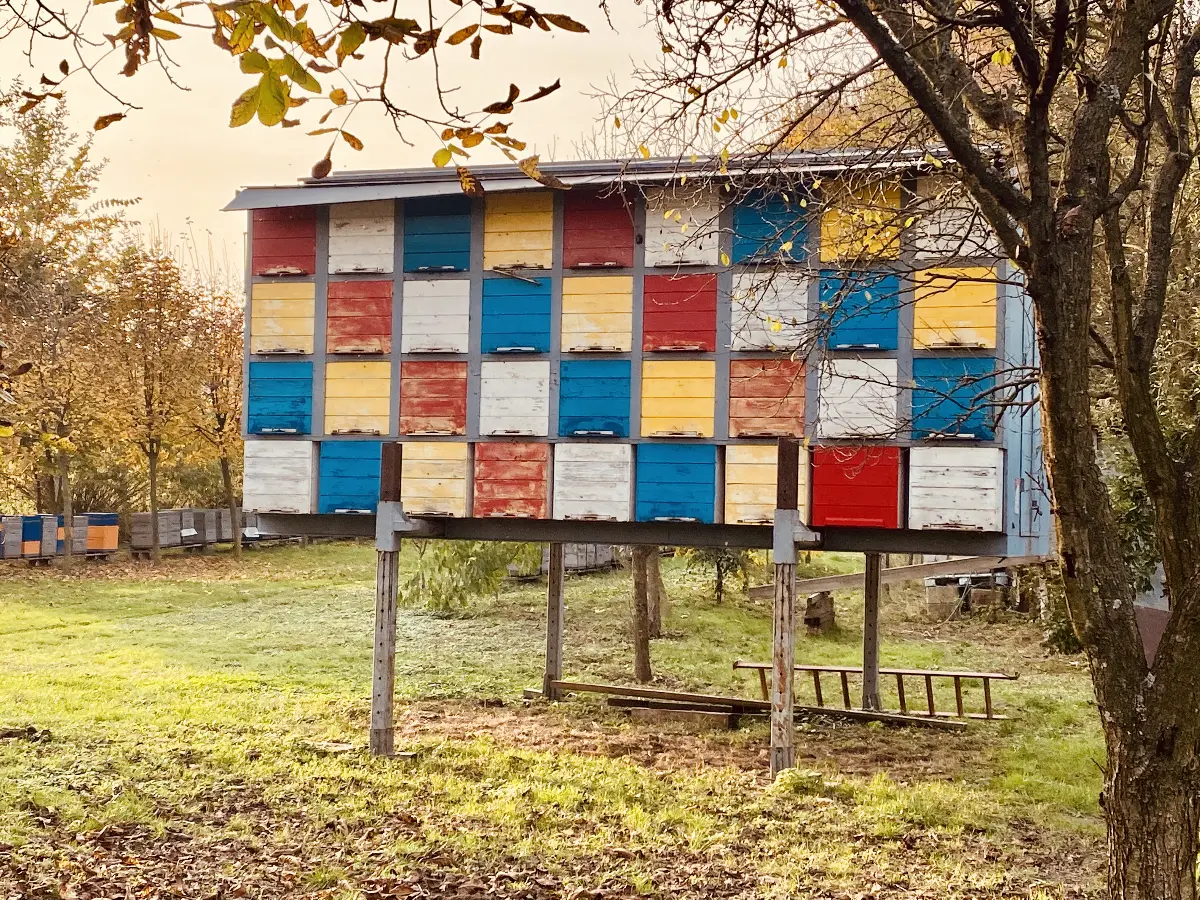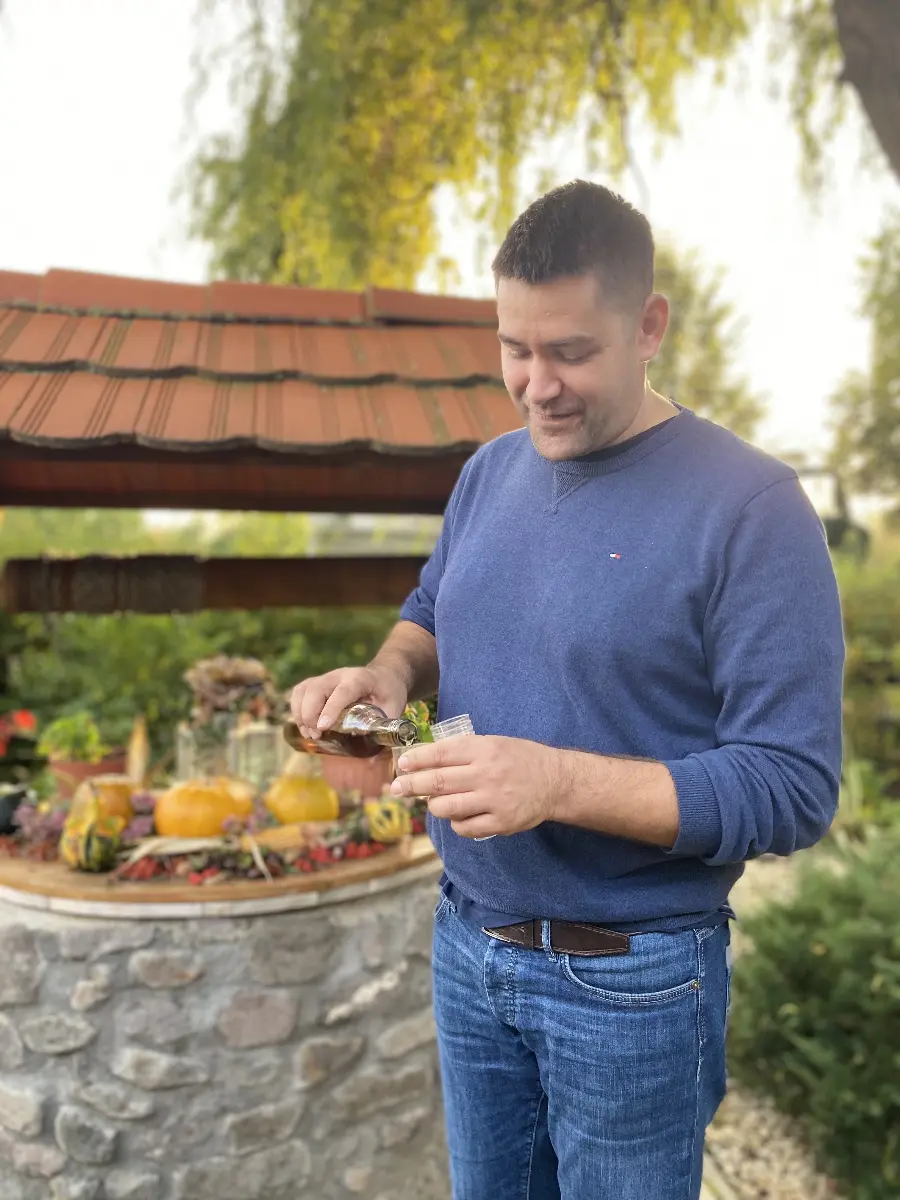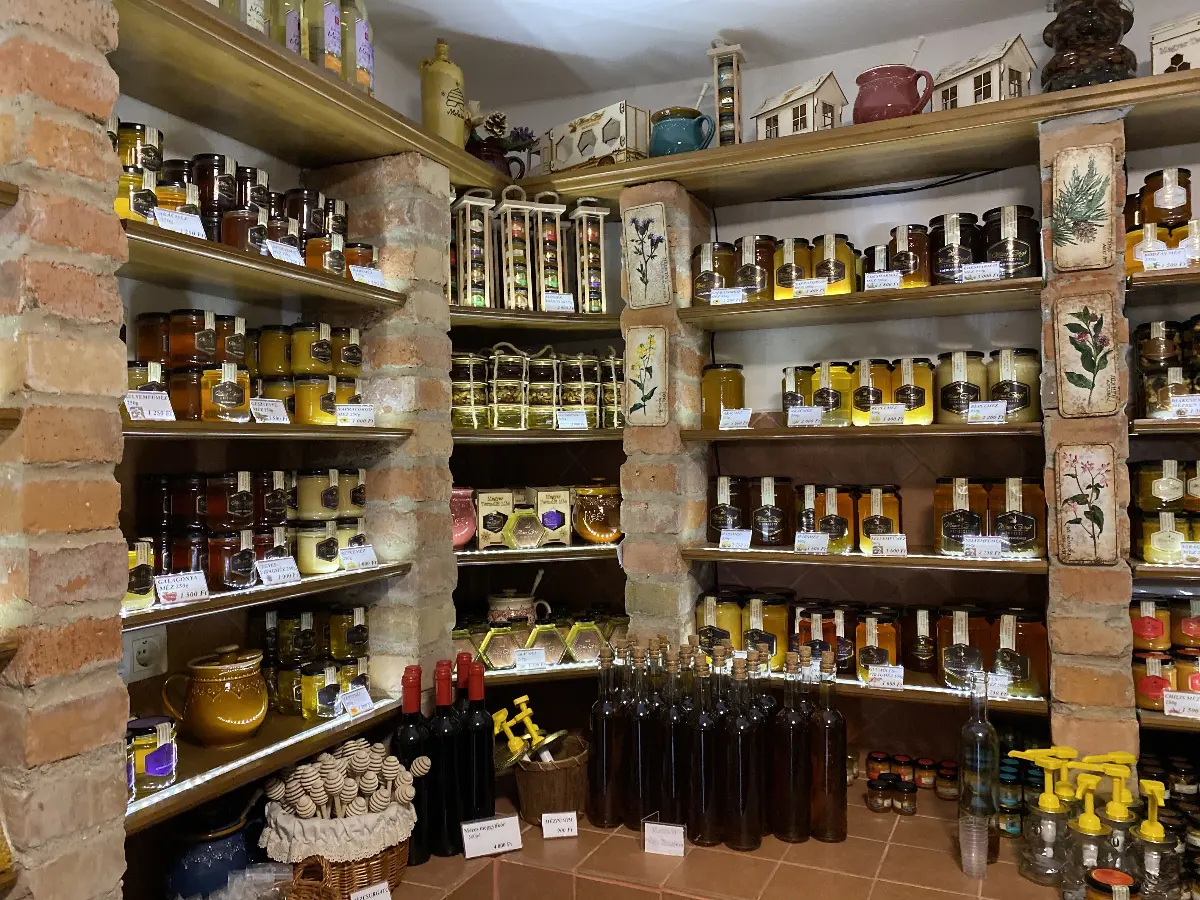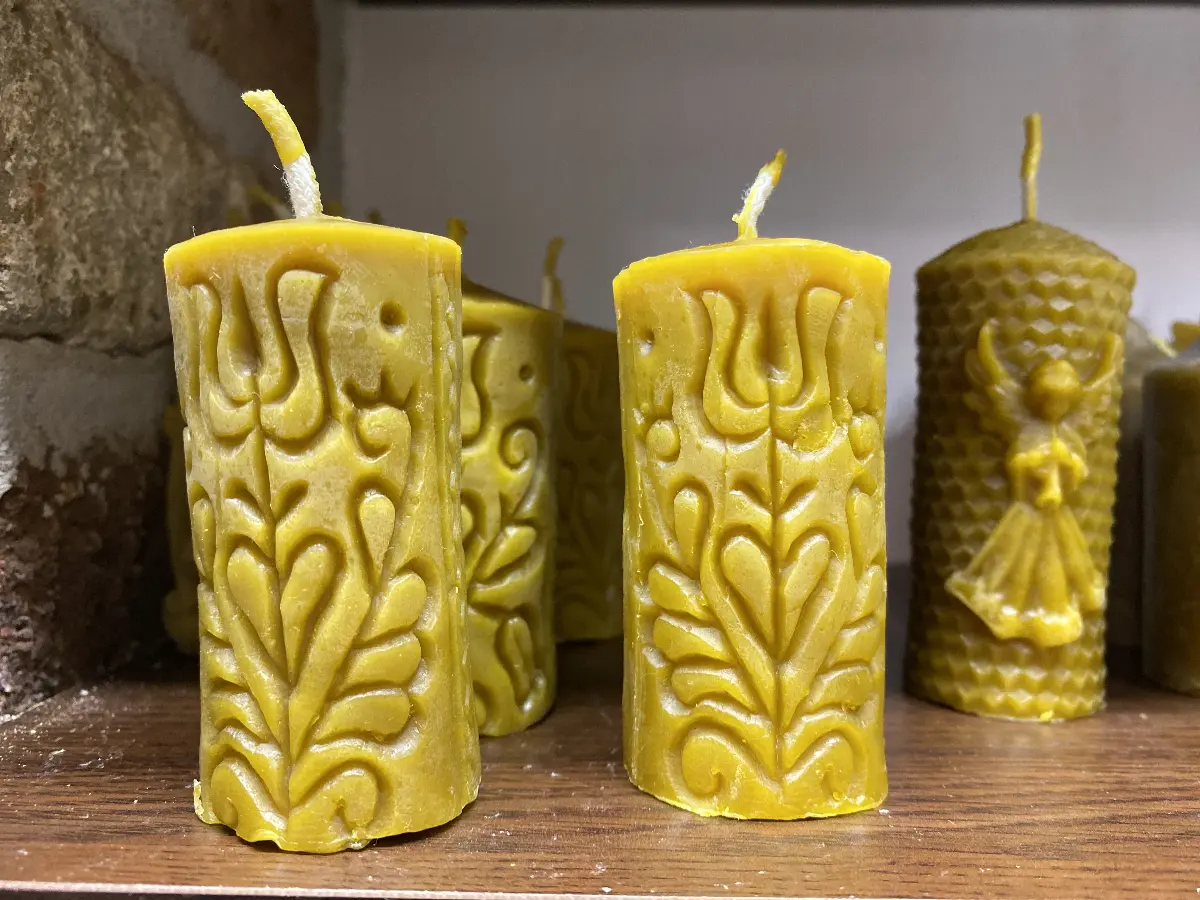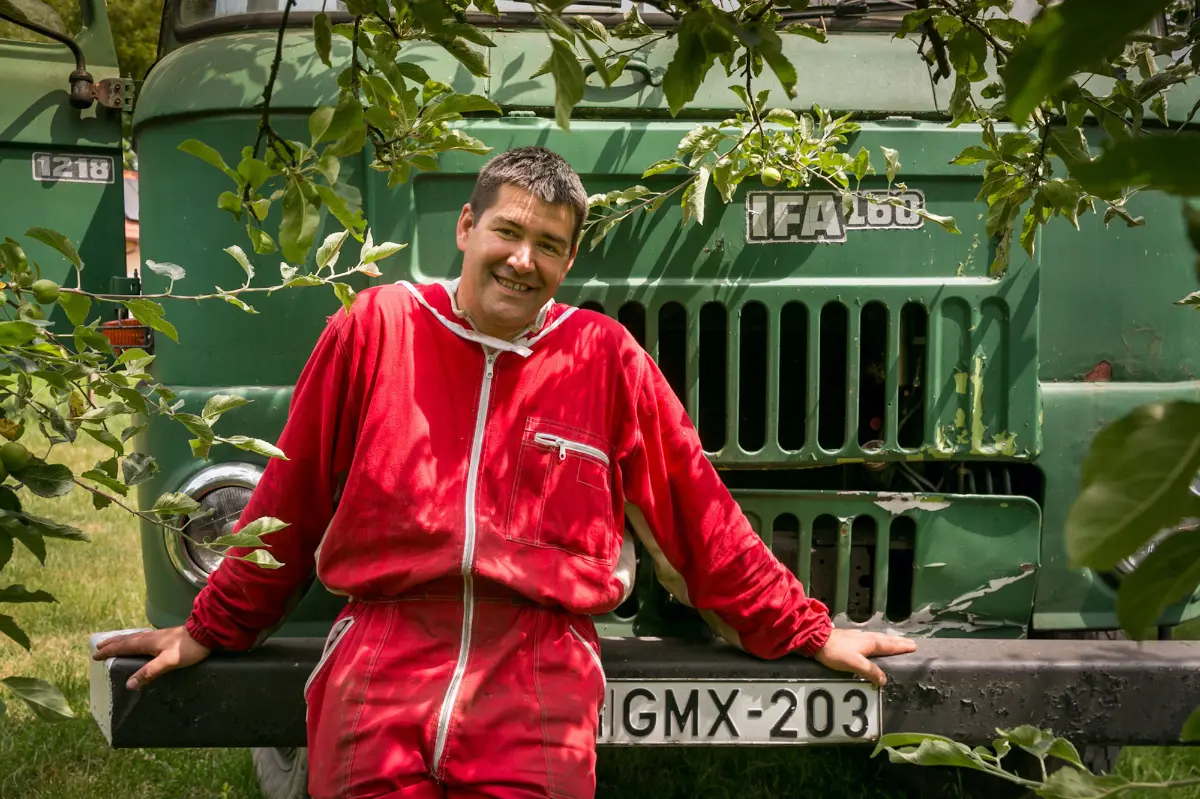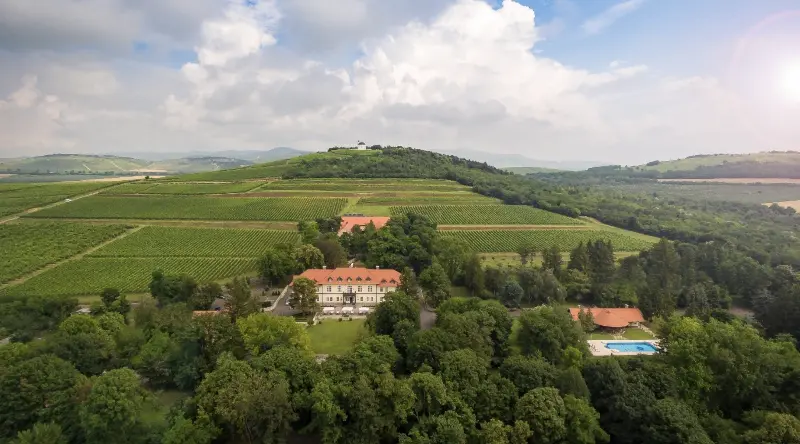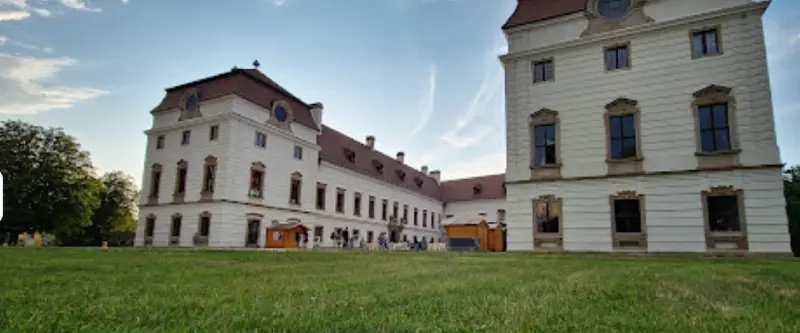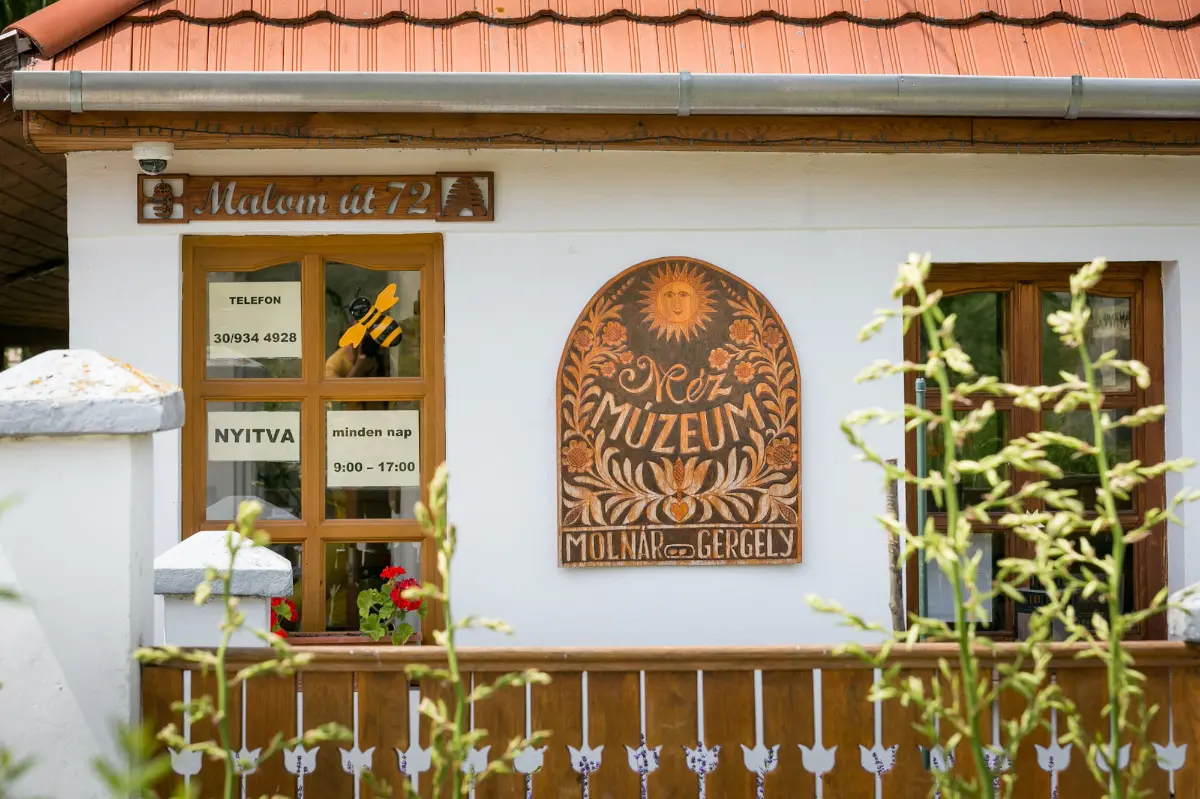
Helyszín címkék:
Honey empire in Vizsoly
Méhész Zsuzsa
To believe, to know, to do
Gergő is a young father of three children who lives in Vizsoly with his family. A typical multi-generational cooperation that we can see: he was taught for farming-beekeeping by his father, who still does his share actively, but some of his three children appear from time to time in the yard. We start our visit here and we immediately see the carved boards hanging on the wall of the museum: quotations, curiosities, and three words in capital letters: TO BELIEVE, TO KNOW, TO DO Gergő’s credo is this in brief, in the order as we read. The family used to deal with agriculture, have fields, keep animals, so everyone knew what cooperationand hard work meant. His father once caught a bee swarm while he was going home, thinking about honey started here. Gergő soon became the youngest master beekeeper in Hungary. At first he sold his honeys in front of the church in Vizsoly, with great success. Let’s confess: honey is honey. Creating something distinctive, unique is apparently not easy in this business, as bees collect pollens and make honey in the sameway all across the globe. Gergő, however, has found out to establish a universal apiary.
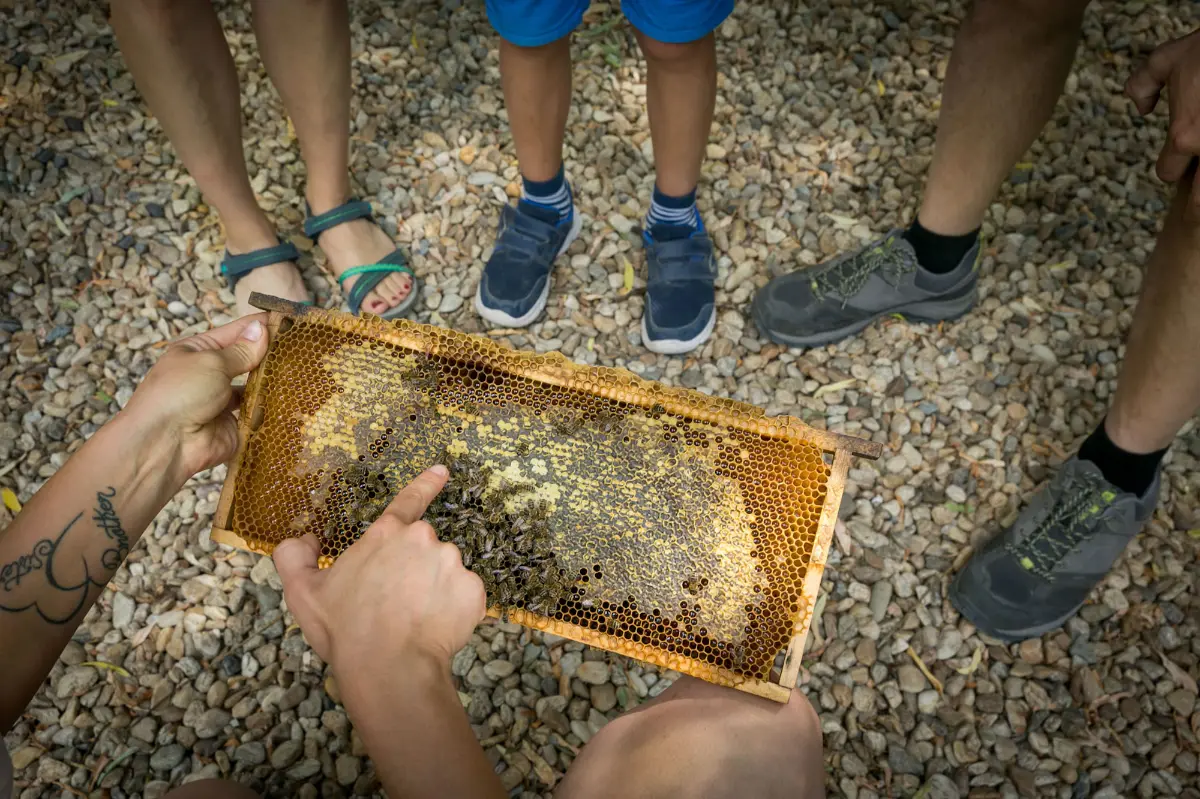
Museum and buzzing cottage
f someone wants to buy strictly honey, tasting can’t be avoided either. We can find apricot, chestnut, ginger, but even dill honey apart from well-known types on the counter. Products with propolis, soaps with honey, fragrant wax candles, mead, but even environmentally friendly, waxy wrapping paper can be bought. Those who get here the first time, however, Gergő does not only introduce the apiary and the work of bees but he also tells private stories. Everything is in tune with honey: In the honey museum the equipment, history, literature of beekeeping can be seen, the bar offering refreshments in the yard is yellow, in the backyard thereis a collection of beehives, among the beehives the parents’ cock is walking. We can observe the bee colony in a glass hive without disturbing their peace — those who want, they can put on a beekeeper suit-hat as well.
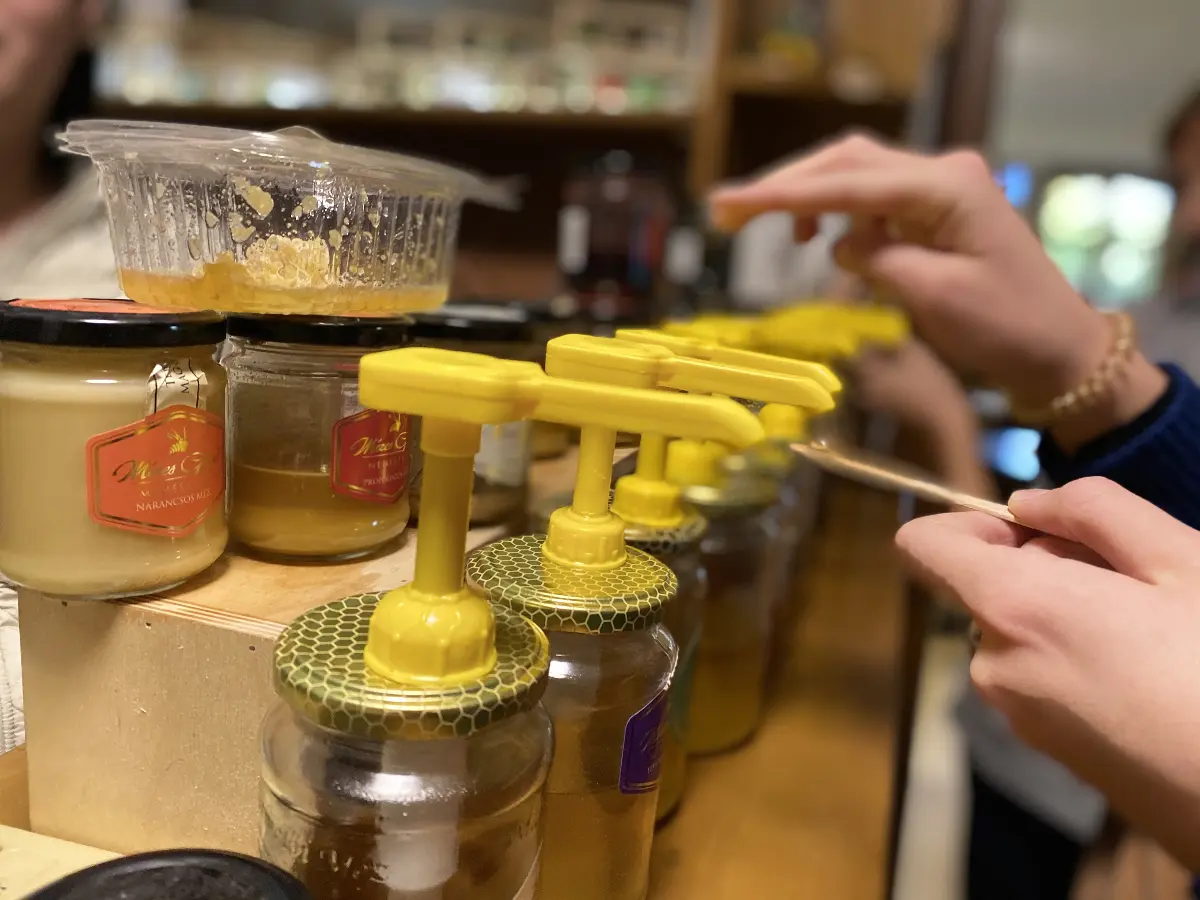
They opened a honey-interest guesthouse two houses away and it occurs that the guests fall into the honey pot as much as they get interested in work beyond introduction — it’s time Gergő got them sat on the old truck and at dawn they go out to the fertile areas. It’s the only way to understand what the honey means that gets into the jar. At the Mézes’.....or at the Molnárs’ it makes up 20 tons in every year. Gergő, however, would have liked to show the bees to visitors in another way too. In the wide yard of the museum among trees a small cottage stands on feet with buzzing bees of many hives under it. Time spent in the small cottageis real, restful relaxation. According to Gergő, one and a half hour spent in there equals eight-hour sleep.
In recent years beekeepers have sounded the alarm. The number of pollinating insects decreases, plants pollinated by them are in danger, and it can cause a wide range of problems all over the world.Gergő Mézes and his family deal with not only honey but providing information: they visit kindergartens, schools in the neighbourhood with a hive made for this purpose to get children acquainted with the work of bees and the ecological restoration which is contributed by these buzzing small animals and need to be tackled responsibly by us.
